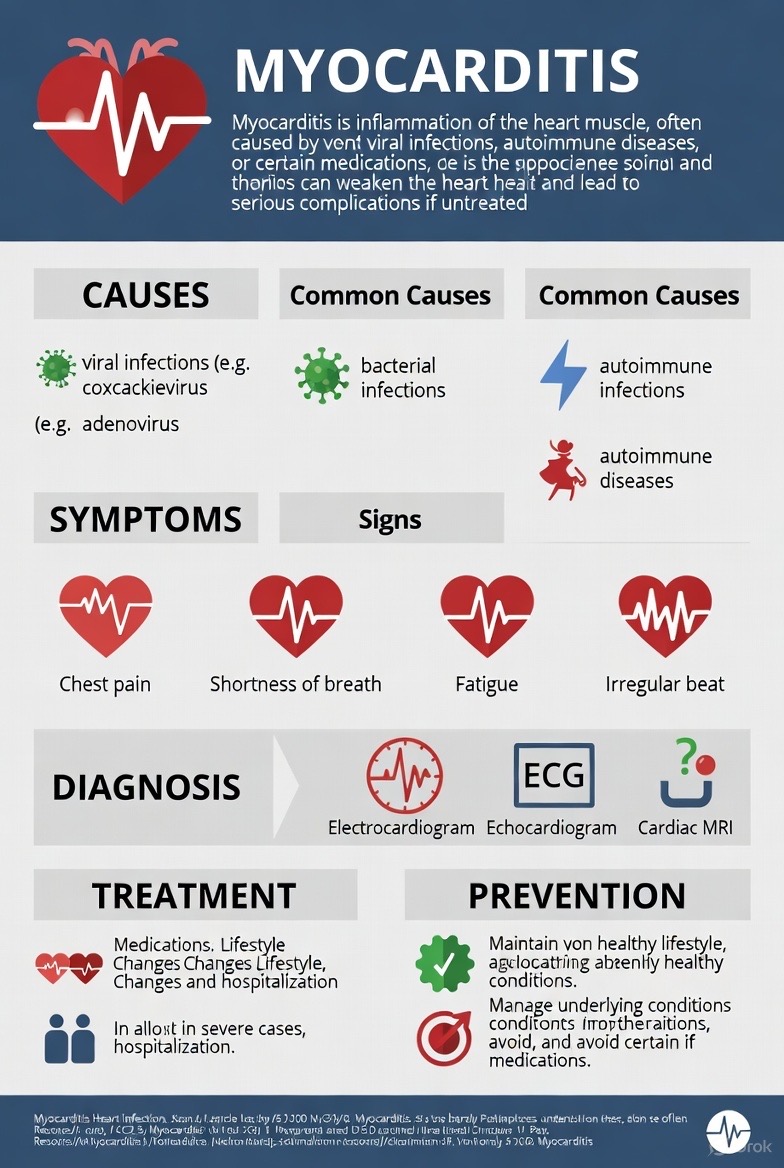What is Myocarditis?
Causes and Risk Factors
Symptoms
You may not have any symptoms of myocarditis, or you may not notice any symptoms since they could be overshadowed by symptoms of the infection that caused the myocarditis. Myocarditis symptoms will depend on the level of inflammation and whether the pericardium is affected (myopericarditis).
Myocarditis can lead to heart failure, rhythm disturbances, or rarely cardiogenic shock (a condition that occurs when your heart suddenly cannot pump enough blood to your tissues and organs).
Symptoms can be very different from person to person depending on the cause of myocarditis but include:
- Chest pain
- Fatigue
- Trouble breathing
- Abnormal heart rhythms, called arrhythmias
- Fever
- Exercise intolerance (no longer being able to exercise)
- Rash
Diagnosis
Often, there are no physical signs of myocarditis. Your healthcare provider will diagnose myocarditis using tests and procedures.
Your healthcare provider may use heart and blood tests to help diagnose myocarditis. Heart tests may include an ECG or EKG, an echocardiogram, cardiac magnetic resonance imaging (MRI), and a chest x-ray. Your provider may test your blood for C-reactive protein and troponin.
Your provider may perform a procedure called endomyocardial biopsy if your other test results are unclear. In an endomyocardial biopsy, a surgeon removes a piece of myocardial tissue for your provider to look at. This procedure is rare.
Once myocarditis is diagnosed, your provider may need to run more tests to find the cause and treat it, if necessary.
Original Article – https://www.nhlbi.nih.gov/health/heart-inflammation/myocarditis





